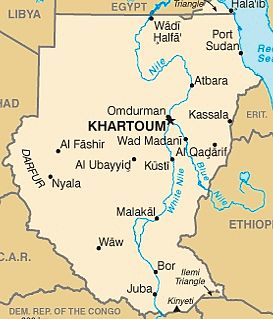Editor's Note: In March, Kurt Pelda, Africa Bureau Chief of the Swiss daily the Neue Zürcher Zeitung (NZZ), traveled to eastern Chad on the border with the Sudanese crisis region of Darfur: a trip that was documented in a diary published in English on World Politics Review and that would see him eventually turning back from the border due to inadequate security conditions. In late October, Pelda returned to the region and crossed the border into Darfur, where he accompanied a Darfur rebel group. The diary of his trip was published on the NZZ Online in German, and World Politics Review here presents it in English. For the first time on our trip, the rebels have slept in a village. It is only when we get up this morning that the reason becomes clear. The town is a ghost town. Around 95 percent of the population has fled. So, the SLA fighters have settled into the empty huts made of straw and clay. I am given a place to sleep under a sun shade. In the morning, I hear the voices of women and the clatter of dishes. The family of a rebel has taken us in. The clear water that comes from a well just behind the farmstead is a real gift: not only for drinking, but also for washing. It is only now that we realize how exhausted we are. The outdoor "shower" is in a corner enclosed by a straw barrier: here you can pour water over yourself from a tin container without being disturbed. It was six days ago that we last "showered" in this way. Our clothes are also in need of cleaning. I wash the few clothes I have with me in a metal basin. After the shower and wearing freshly washed, if rumpled, clothing, we feel new again. Ibrahim, Umar and my other travel companions wait until the afternoon to wash. People here believe they will get sick if they wash in the relative cool of the morning or evening. Whether this is just superstition or a matter of experience is not entirely clear.
In a Ghost Town
The Old Woman Who Has Been Driven from her Home Three Times
In Darfur: A Travel Diary (Day 9)

